When it comes to accessing your laboratory test results, knowing how to formally request them can make all the difference. Many people are unsure of the proper way to phrase their request, but it doesn't have to be complicated. A well-structured letter can help you convey your needs clearly and efficiently, ensuring you get the information you seek. If you're curious about how to craft this request meticulously, keep reading for a detailed letter template that can guide you through the process!

Patient Identification Details
Patient identification details are crucial for accessing laboratory test results accurately and efficiently. Key information includes full name, date of birth, and medical record number (a unique identifier assigned by the healthcare facility). The current contact information, such as phone number and email address, ensures that healthcare providers can reach the patient for follow-ups. Additionally, the date of the lab tests performed provides context for the results, distinguishing between multiple visits. Clinicians may also require specific test names or types (e.g., blood glucose test or complete blood count) to retrieve the desired data efficiently from the laboratory databases, such as LOINC (Logical Observation Identifiers Names and Codes) codes.
Healthcare Provider Information
Healthcare providers play a crucial role in patient care and management, encompassing entities such as hospitals, clinics, and specialized medical research laboratories. Effective communication with these providers is essential for accessing important health information, including laboratory test results. These results can include crucial metrics like blood glucose levels, cholesterol readings, or complete blood count values, directly influencing diagnosis and treatment decisions. Timely retrieval of these results is vital, especially in urgent cases like suspected infections or chronic disease management, ensuring that patients receive appropriate medical interventions as soon as possible.
Specific Test Results Requested
Laboratory test results provide essential insight into patient health, with specific tests like Complete Blood Count (CBC) and Lipid Panel being pivotal for diagnosing conditions. These results typically indicate important metrics such as white blood cell count (normal range 4,500 to 11,000 cells per microliter) and cholesterol levels (ideal total cholesterol under 200 mg/dL). Laboratories, such as Quest Diagnostics or LabCorp, facilitate efficient processing of these requests. Timely access to these results enables healthcare providers to make informed decisions regarding patient care, ensuring necessary treatments or interventions are initiated without delay.
Purpose and Urgency
Laboratory test results provide critical information regarding patient health and medical conditions. Specific tests, such as complete blood counts (CBC) or metabolic panels, can reveal vital metrics including infection indicators, organ function, and metabolic disorders. Timely access to these results is crucial, particularly in urgent clinical scenarios like diagnosing infections or evaluating treatment efficacy. Healthcare providers often rely on these results for making informed decisions. In the case of life-threatening conditions, delays in receiving test outcomes can compromise patient safety and impact treatment interventions.
Preferred Communication Method
Laboratory test results play a crucial role in diagnosing and monitoring health conditions. Patients often prefer receiving these results through specific communication methods. Digital formats, such as encrypted emails or through secure patient portals, allow for quick access and convenience. Traditional methods, including postal mail, offer a tangible document that some patients may find reassuring. Telephone communication provides an immediate exchange of information and the opportunity to discuss results directly, aiding in understanding and clarifying any concerns. Hospitals and clinics must adapt to individual preferences while ensuring privacy and compliance with regulations such as HIPAA.
Letter Template For Request Laboratory Test Results Samples
Letter template of follow-up request for delayed laboratory test results
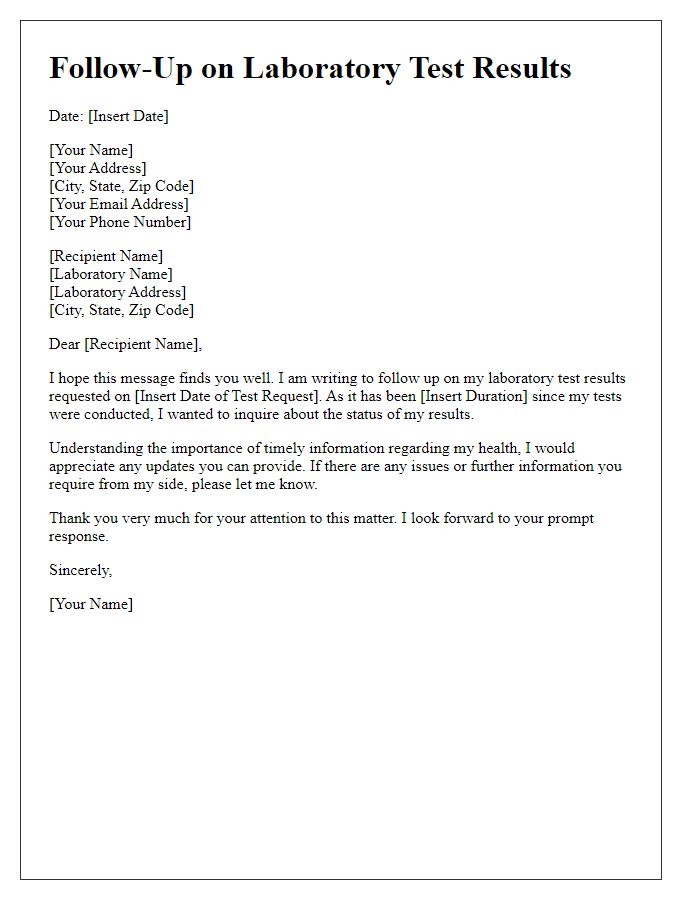
Letter template of authorization for third-party access to laboratory test results
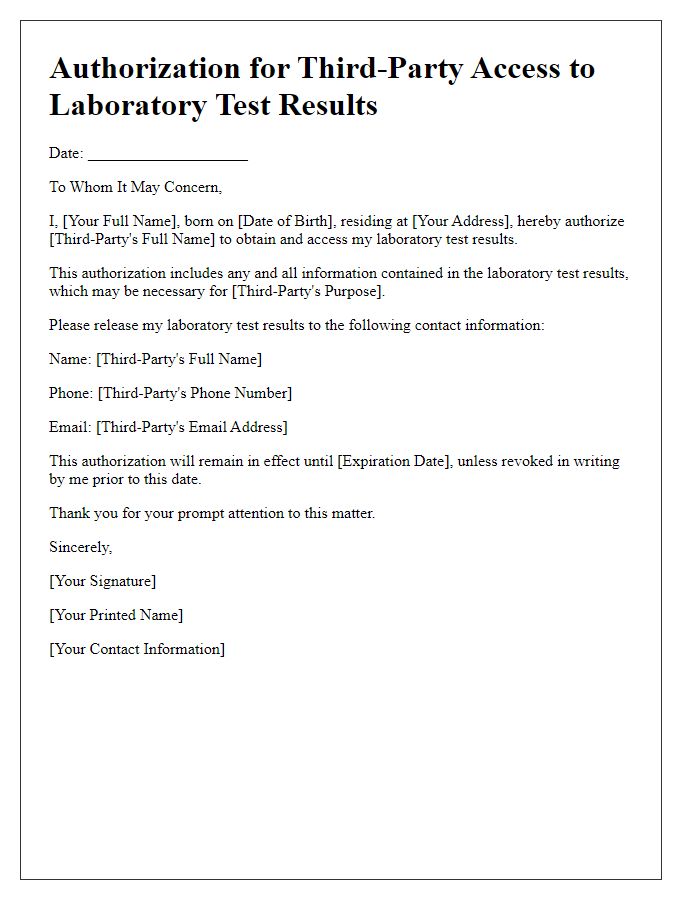
Letter template of request for electronic delivery of laboratory test results
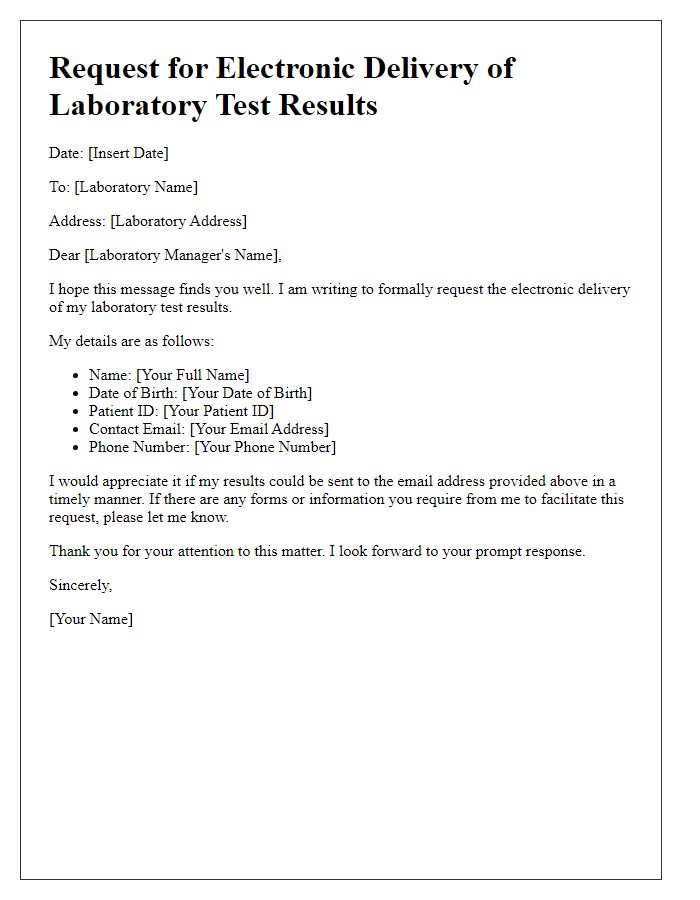
Letter template of request for laboratory test results for insurance purposes
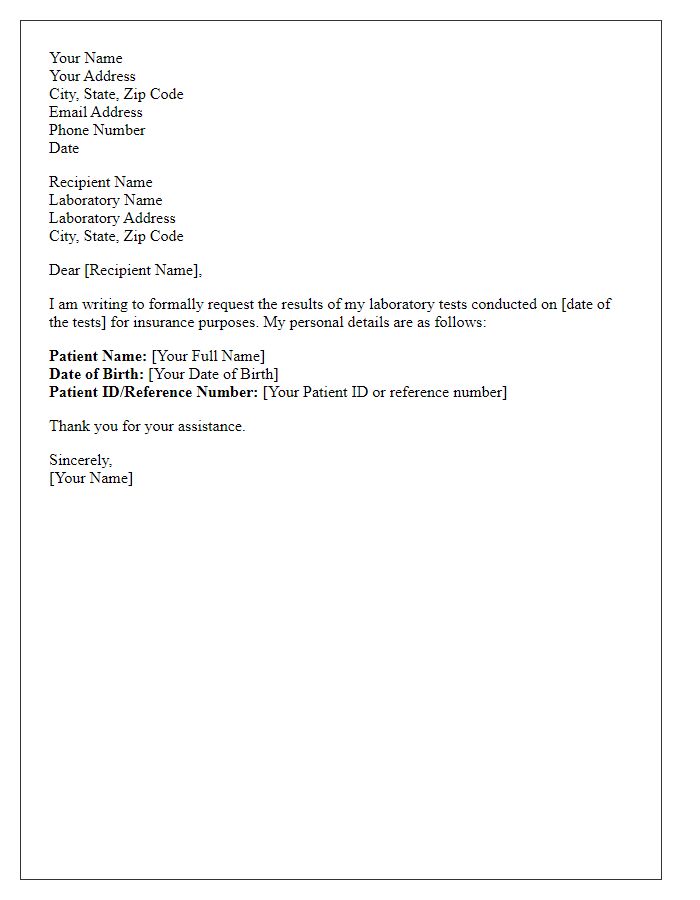

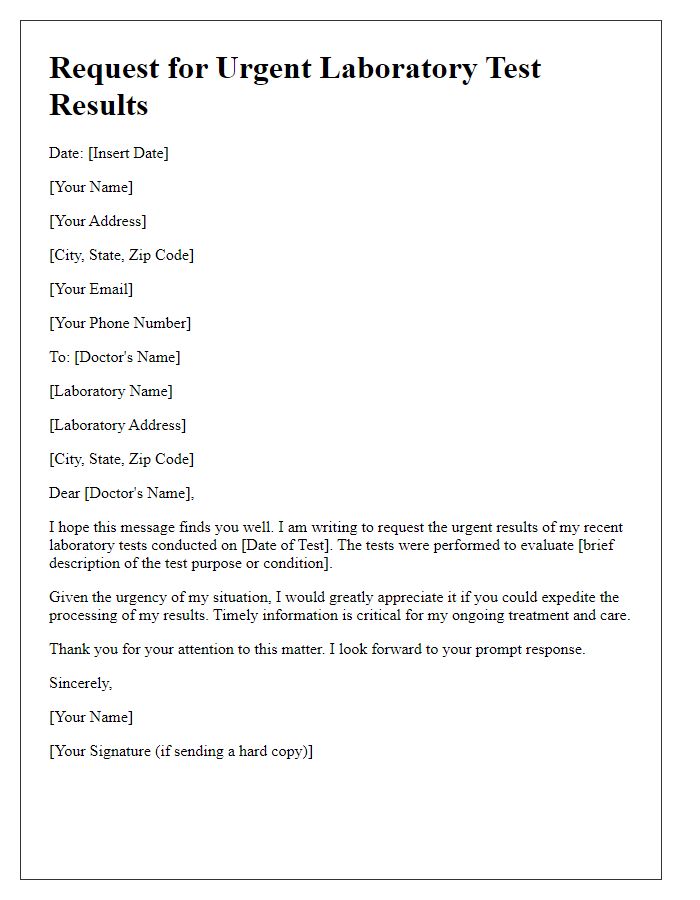
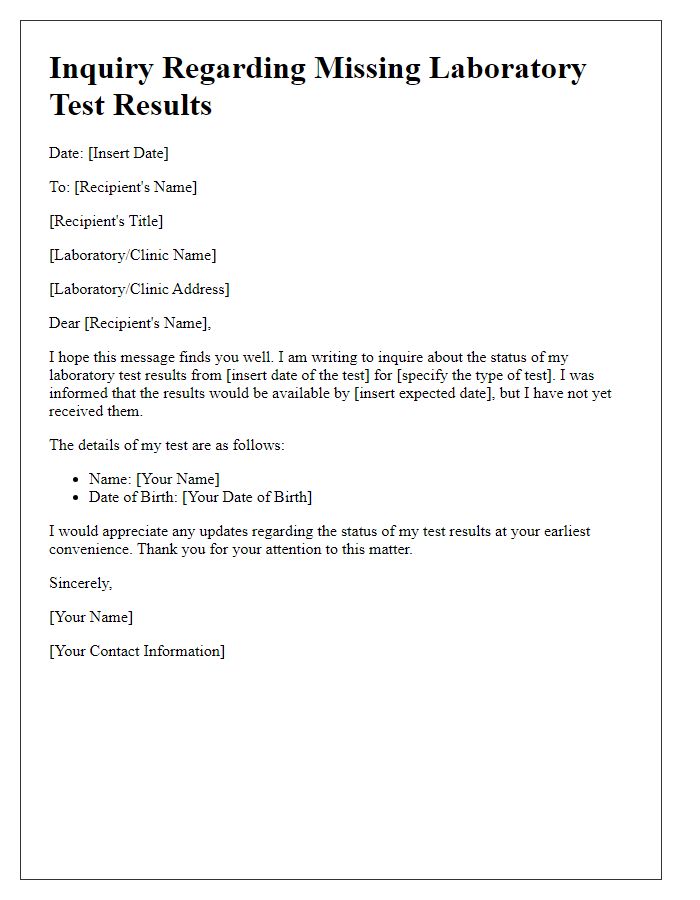
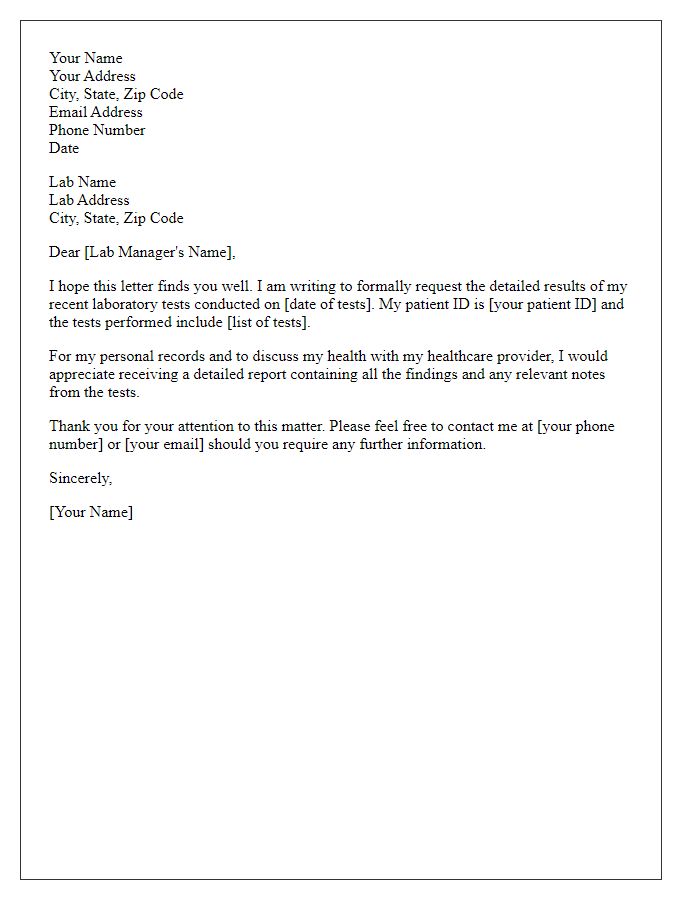
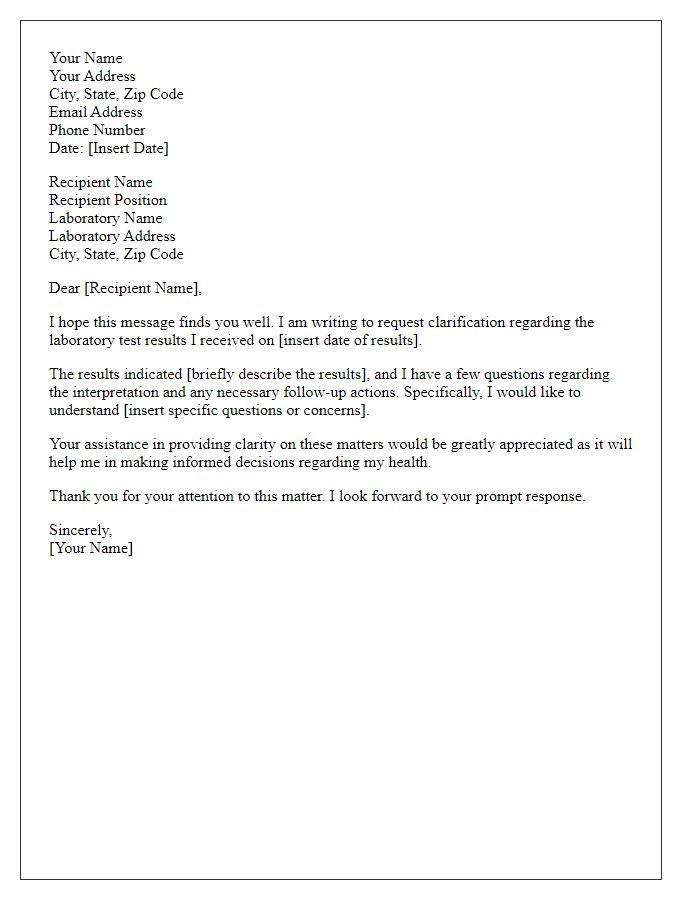
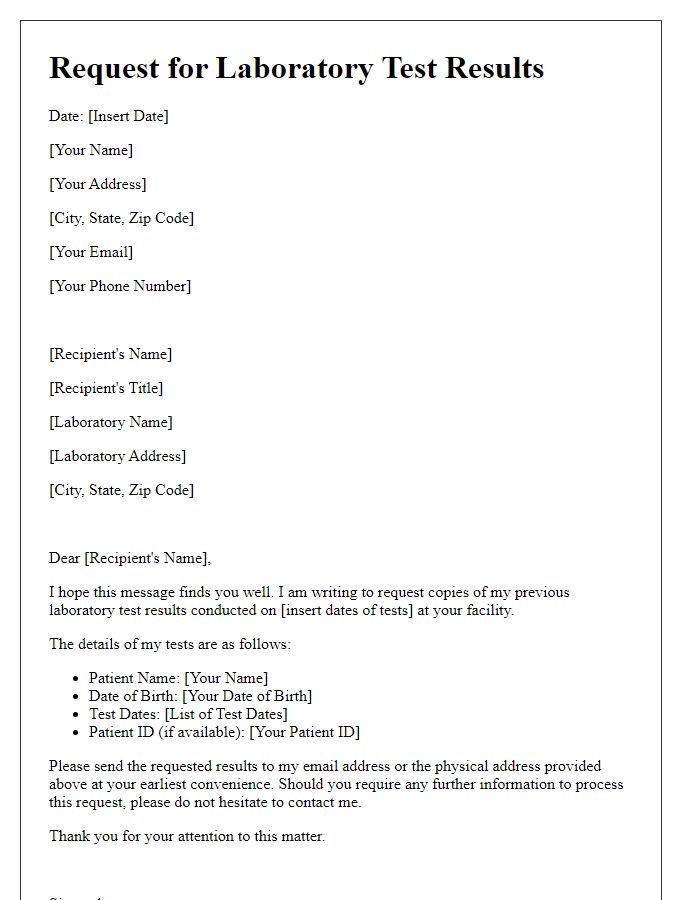
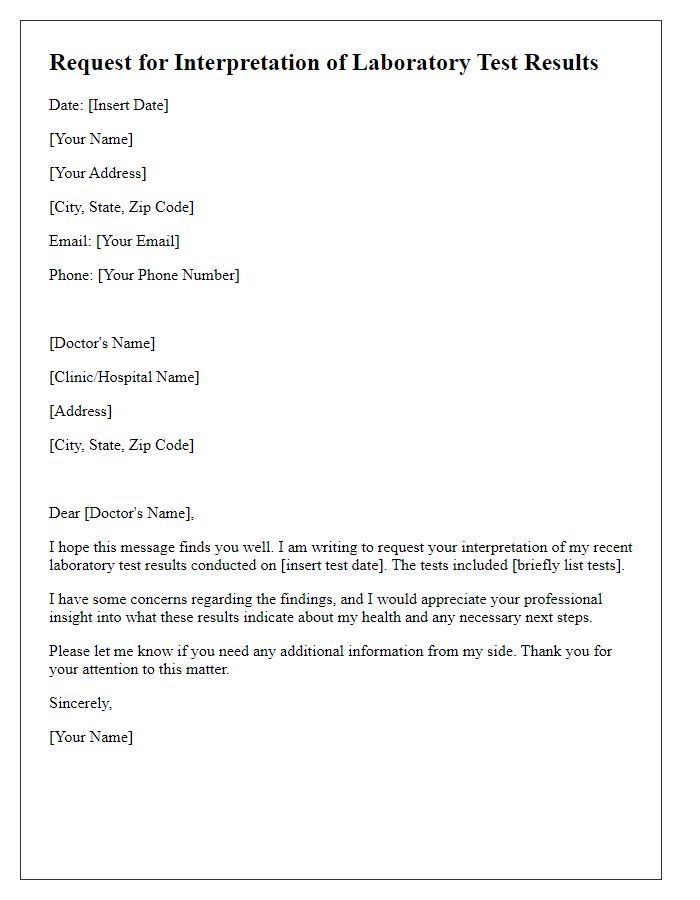


Comments